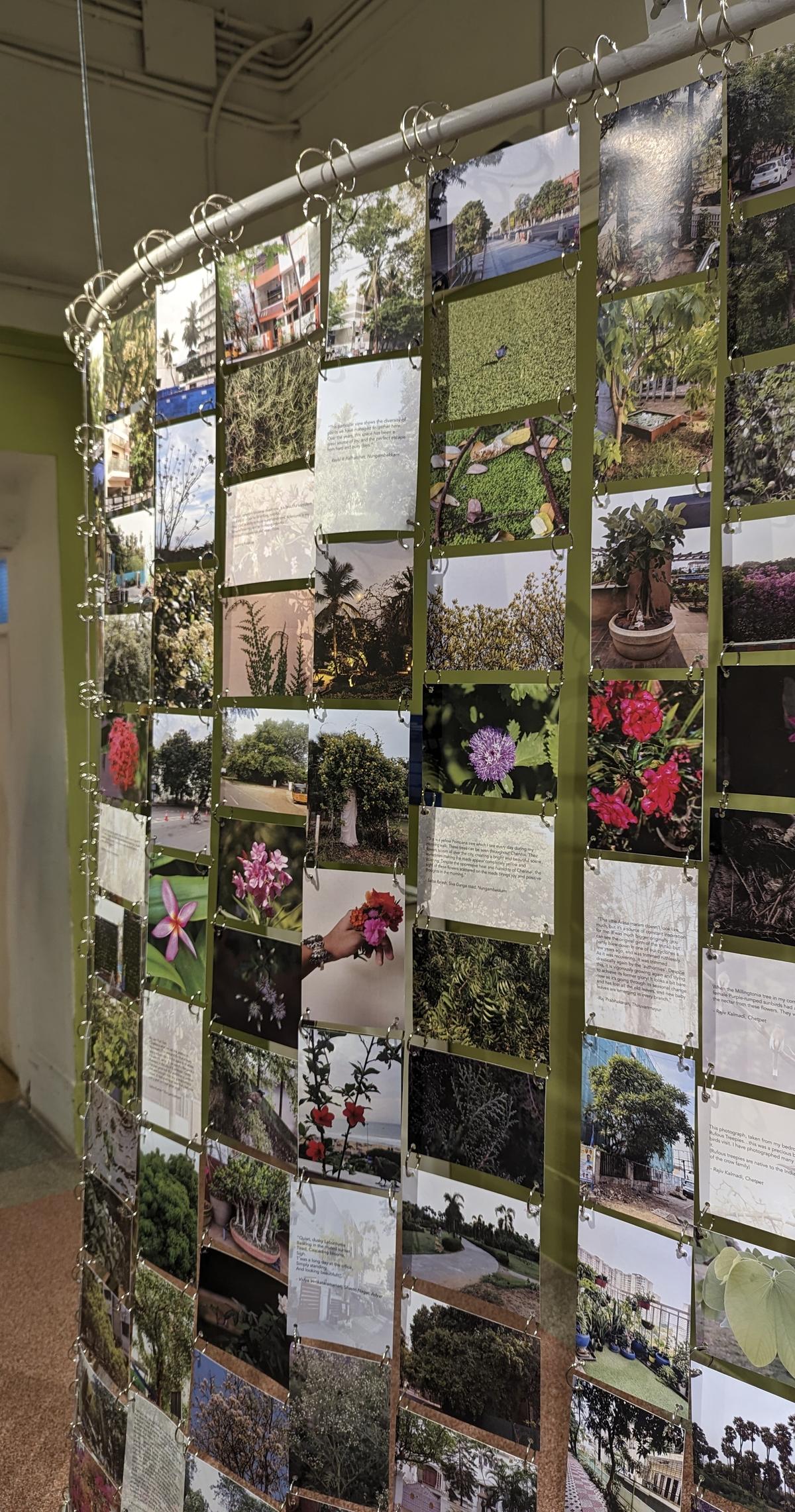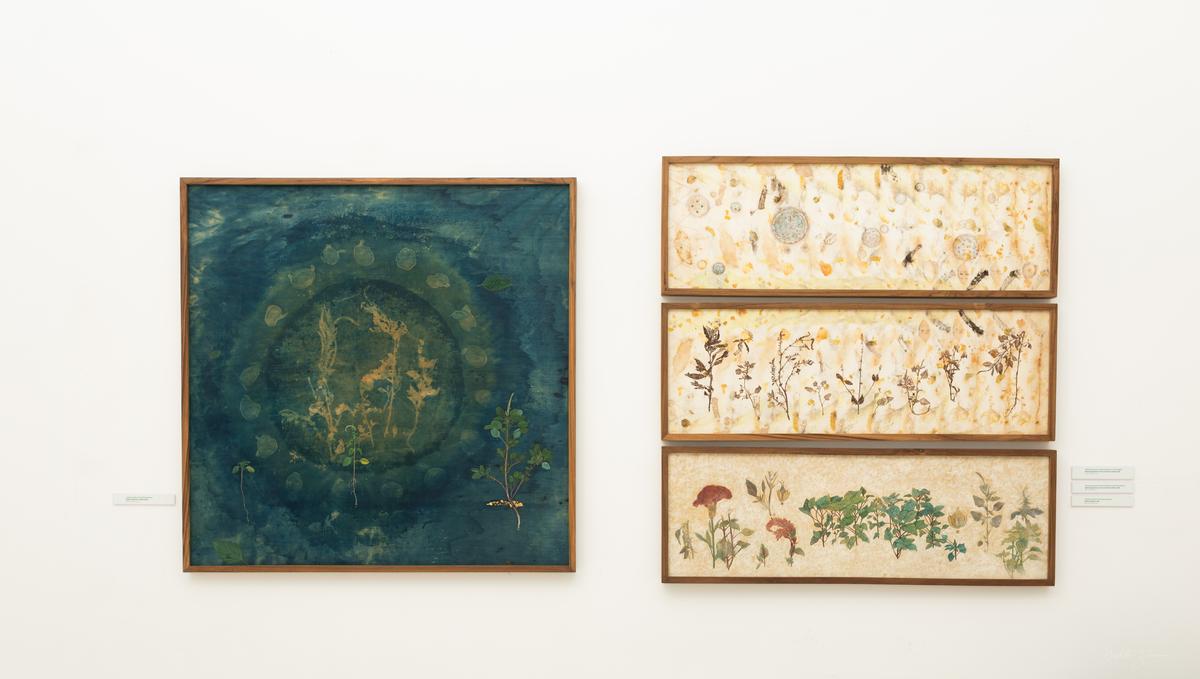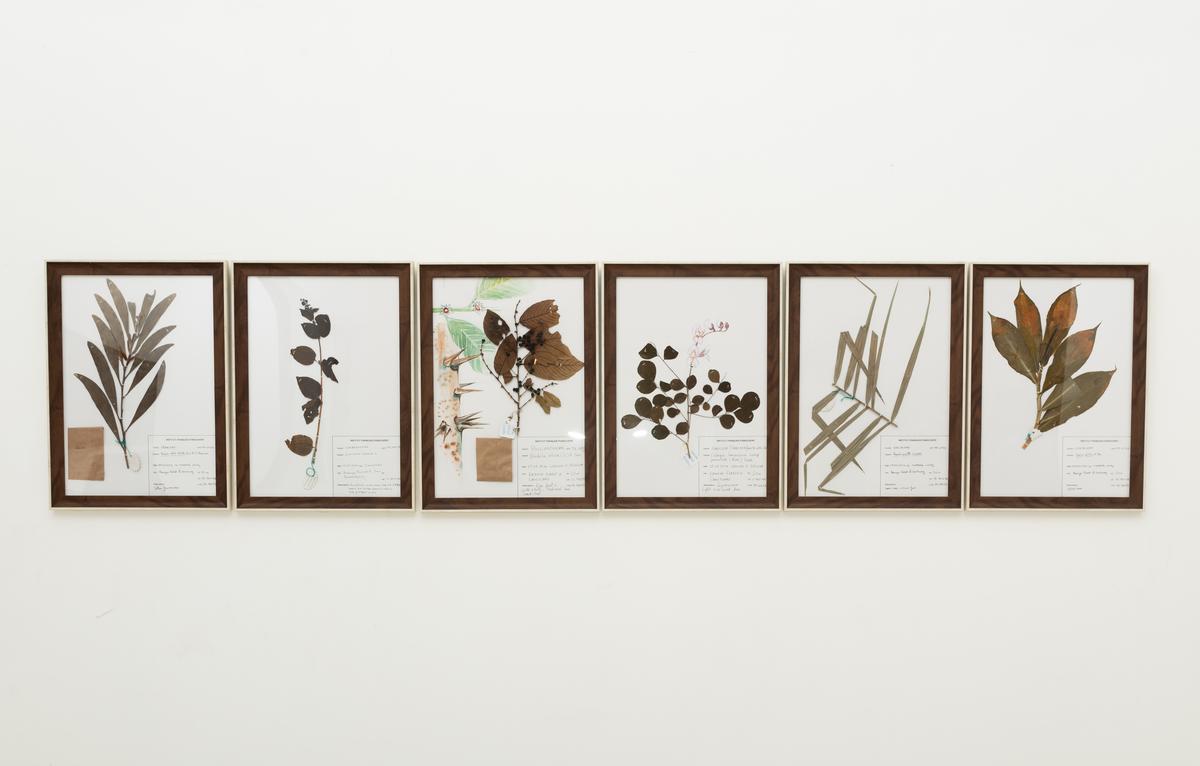Travelling Plants exhibition
| Photo Credit: Special Arrangement
While it might not be nicknamed the Garden City of India, Chennai is home to its fair share of greenery. This might go unnoticed, but we actually are surrounded by plants that make a difference in the way the city changes through the seasons.
The Goethe-Institut Chennai, in collaboration with the Alliance Française of Madras and the Institut Français de Pondichéry (IFP) is hosting the Travelling Plants exhibition which helps us remember and think about plants, and how they have changed over the course of the country’s history.

Rooted Perspectives: A Collective Response to Plant Blindness
| Photo Credit:
Sangita Rajan
As you enter the Alliance Française of Madras through a canopy, you are first welcomed by the sight of a community project commissioned to Chennai-based artist Parvathy Nair — Rooted Perspectives: A Collective Response to Plant Blindness. Plant blindness is the tendency to overlook or undervalue plants in our environment. “If we don’t notice the plants around us when they are there, how will we notice them when they start to disappear?” asks Parvathi who invited submissions of photos and stories of plants around neighbourhoods, which were also on display.
Waylon D’souza’s exhibit
| Photo Credit:
Special Arrangement
Travelling Plants exhibition is a trans-disciplinary project curated by independent art historian Lina Vincent. The exhibition showcases art created by five artists who were part of a residency centred around the herbarium at IFP Puducherry, in March this year. Karolina Grzywnowicz (Germany), Wendy Therméa (Reunion Island, France), Danushka Marasinghe (Sri Lanka), Waylon D’souza (India), and Rashmimala (India) — were picked to be part of the residency, and by extension this exhibition for their creative practices that coincide with the Nature.
The artists were presented with guidance in the form of hands-on workshops, lectures, presentations, and Nature walks. “They were given a free hand to decide what they were interested in, and each artist has taken a different direction. Their medium is different and so are their languages,” says Lina.
The exhibit by Waylon D’souza explores the geological, climatological and anthropological timeline of plant histories, while Rashmimala forges connections between the legacies of colonialism, pressing environmental issues, and the enduring presence of plants. Wendy Therméa explores the unintended consequences of human intervention on ecosystems. Her work focusses on the water hyacinth, a plant whose introduction to both India and her native Reunion Island has disrupted the delicate balance of those environments.

“I have been working with plants for quite some time, and for this project, I collected ground plants from the herbarium at IFP and took a print on the cyanotype paper, which produces a silhouette of the plant. Later, I filled in the details,” says Rashmimala.
Berlin-based Karolina Grzywnowicz’s artwork was a deep dive into the understanding of socio-political conditioning of plants and plant matter. Her study and art focusses on how colonisation as well as the activities by the Forest Department then have changed the landscape of the Nilgiris and interacted with the Toda community to understand the landscape and changes better.
Travelling Plants exhibition, as the name suggests, will travel to four other Indian cities — Pune, Delhi, Bengaluru, and Kolkata, and then set sail to Colombo. In each city, the exhibition is going to add its own local elements apart from the main exhibits.

Rashmimala’s exhibit
| Photo Credit:
Special Arrangement
“People were waiting for this project to start, and we happened to be the first to bring up the idea. This enthusiasm is not just a Chennai thing, because this exhibition is going to travel to Kolkata after this, and it is going to be showcased together with Botanical drawings from the East India archive, giving it a completely different context again,” says Katharina Görgen, director, Goethe-Institut Chennai at the inauguration of the show which presented guests with floral drinks, plant-based food, Nature themed make-up kiosks and a mehendi artist who drew the audience’s palms with minimalist Arabic-style designs.
The exhibition in Chennai will also be accompanied by panel discussions, Nature walks, botanical sketching for art enthusiasts and multiple workshops including ones on terrariums, cyanotypes and how to make your own flower tiaras, among others, which require separate registration.
The Travelling Plants exhibition will be on display at the Alliance Française of Madras until June 29. For more information log on to @afmadras on Instagram.